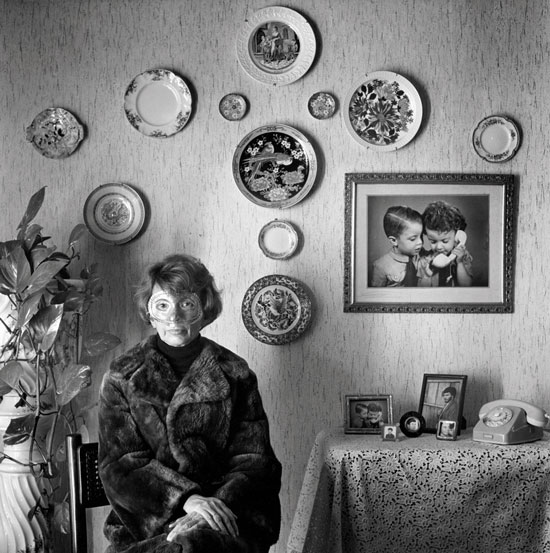My aunt Delia, who was raised in the country, used to say that when she was twelve years old her parents sent her by train to a Catholic boarding school all by herself and they didn’t see her again until Christmas. She stayed at that school until she graduated as a schoolteacher at the age of eighteen.
My mother was orphaned when she was four years old. She couldn’t understand why her mother had died in a room she remembered as large, white and sunny, because they had taught her the popular saying: “The doctor never goes where it’s sunny.” It’s very moving to hear her tell this story. She tells it as something natural, with a sense of awe and no sadness. She went on to be raised by two maiden aunts, her aunt Juana and her aunt Lola, sisters of my grandfather José Rodríguez. They were Spanish immigrants who came to America from Galicia at the beginning of the twentieth century. In her later years, Juana married Danny Lichtenstein, a survivor of the Nazi death camps. Lola remained unmarried. My maternal grandmother also came from Spain. María Bezos. A seamstress. She was widowed when my father was three years old. We call her Mamama. No sooner had she arrived than she married a native Argentine, a swarthy man with straight, dark hair named Pedro López. A mailman. Originally from Santa Fe. My grandmother was a seamstress who ended up with seventeen “officials,” which is what she called her assistants; she made the party dresses for the women in Santa Fe’s high society. She worked from sunrise to sunset. She never remarried. When she was an old lady, in the 1960s, she made long party dresses for my cousins in a single afternoon. The girls bought the fabric on Friday for a party on Saturday night. My father says that my grandmother would cut the fabric without a pattern. She could measure the sizes by eye, without using a tape measure.
These scenes are a part of me. They are what I am. Red-hot brands of my most intimate feelings joined to the experience of a people to form what we call “cultural identity.” Between the great “causes” and the stifled cry of a young woman in the infinite solitude of a nun’s cloister, longing for a mother’s embrace, a Sunday evening.

This is who we are. Mestizo grandchildren of native Argentines and Galicians, Italians, Russian Jews, Poles, who, by means of the arrogance of work, set out to build a country on these savage Pampas, where the Gauchos were accustomed to killing a cow to eat a few steaks and leaving the rest for the vultures. I don’t like arrogance. Not when it comes to work or anything else. Nor do I like the know-it-all Gauchos who look at you out of the corner of their eye and laugh if you try to mount a horse with the wrong foot. I’m left-handed. I’m sure it’s all the same to the horse. I like to waste time. I find solace in writing. I don’t like anybody to bother me so I can be at peace communing with my ancestors and my other selves. With my dead. With the loves that have never come to be, with those that are and with those that will be. Recalling my youth in Santa Fe: I leave my house on Güemes Street for a walk after lunch, going down Balcarce toward the suspension bridge, taking a shortcut under the highway one day in the damp autumn, the sky gray and the breaking waves of the lagoon striking the rail, splashing water and making the air unbelievably sticky. I stay there a long time. I claim this no man’s land as my own in order to be free. Photography is directly related to melancholy. To death. That’s a commonplace. I was trying not to say it, but it almost typed itself.
Years later, I had the same sensation in Cuba. I identified with the people who sit on the breakwaters of Havana to look out at the sea. Couples, children, old people, people alone. Something complex and very beautiful. The same melancholic feeling of distance, that same desire for something else… The illusion that that brown lagoon four blocks from my house full of stagnant floating plants let you see without much effort, and despite the mist, the other shore, as though the sea. The vast sea. All seas. Life lying before me: Sparta, Athens, Troy, Ulysses, the African slave ships reaching the north of Brazil, the pirate ships of the Caribbean, the KonTiki raft defying the storms of the South Pacific, the conquistadores, the Vikings, I myself reincarnated in the figure of Fernando de Magallanes, out of control, giving orders, putting down mutinies, wild with hunger and passion, drunk with vanity and stupid power, crossing in all my glory the waters of the strait and discovering, unknowingly, Tierra del Fuego.
Marcos López
